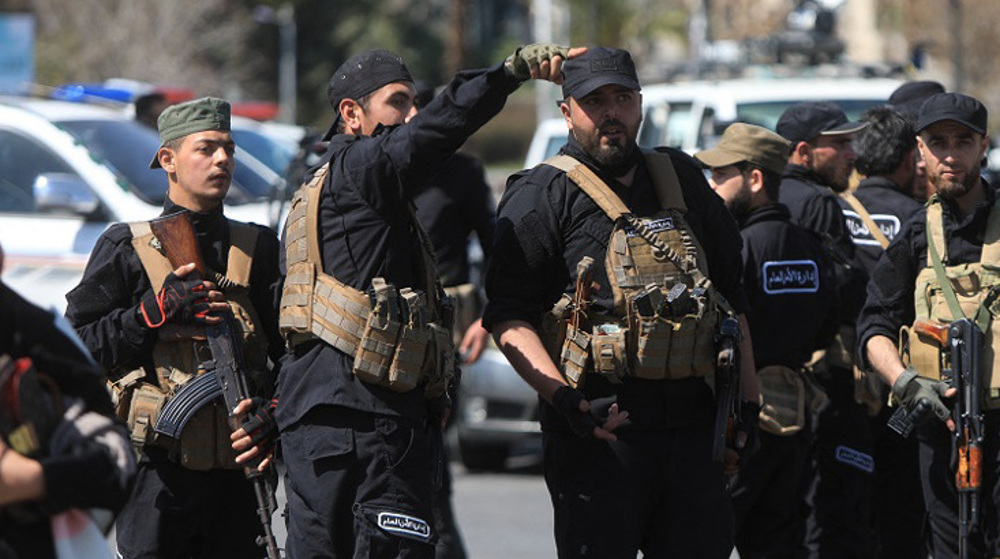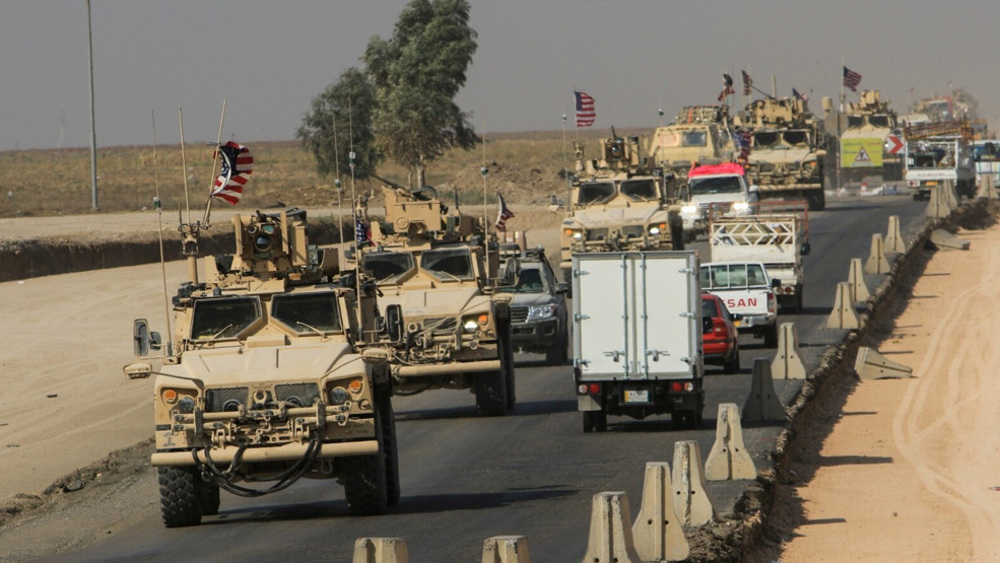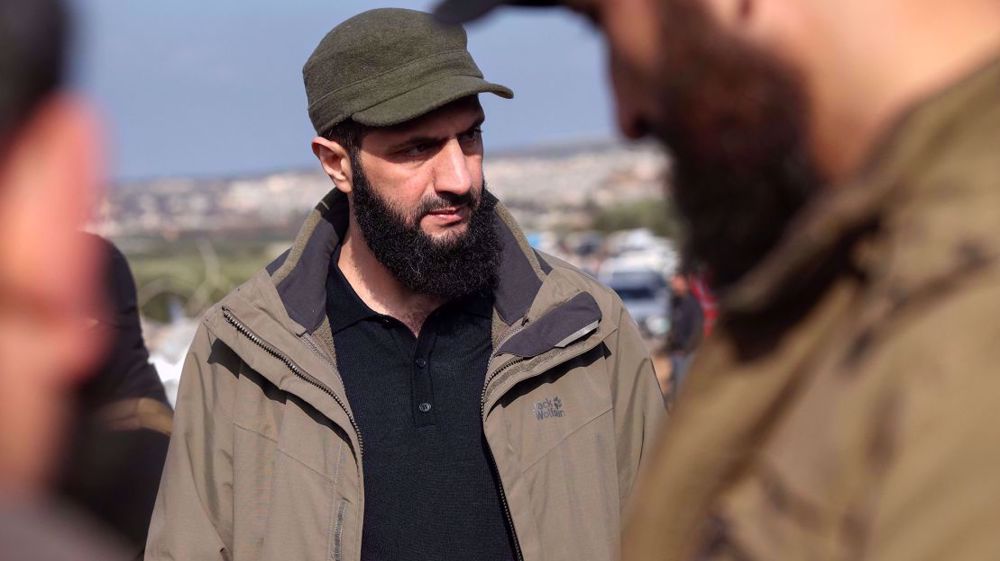Iran, Russia, Turkey agree on mechanism to ensure Syria truce
Syrian peace talks have wrapped up in Kazakhstan's capital of Astana, with Iran, Russia and Turkey agreeing on the establishment of a trilateral mechanism to support the ceasefire in the country and monitor possible violations.
The final joint statement, which was read by Kazakh Foreign Minister Kairat Abdrakhmanov on Tuesday afternoon (local time), underlined the importance of maintaining the national sovereignty of Syria.
The trio stressed that there was no military solution to the Syria conflict and it can be only resolved through a political process based on full implementation of the United Nations Security Council Resolution 2254.
The three countries also agreed to work out a trilateral agreement with the goal of supervising the ceasefire in the Arab country to guarantee all parties’ commitment to Syria truce and prevent possible violations of ceasefire.
Elsewhere in the statement, Iran, Russia and Turkey backed participation of Syria’s armed opposition in UN-sponsored negotiations on Syria, which are scheduled to be held in the Swiss city of Geneva next month.
The statement said the three countries "support the willingness of the armed opposition groups to participate in the next round of negotiations" under UN auspices in Geneva on February 8.
The opposition has reportedly expressed dissatisfaction over the statement.
They also reaffirmed their commitment to protecting sovereignty, independence and territorial integrity of Syria as a democratic country.
Mohammed Alloush, who headed the Syrian opposition delegation to Astana talks, said the opposition had reservations about the final communiqué of the talks, adding that opposition groups had submitted a separate ceasefire proposal.
He said Russia was expected to respond within a week to the ceasefire proposal offered by opposition groups.

Among salient features of Astana talks on Syria was absence of Saudi Arabia and Qatar, which had taken part in previous meetings on Syria in the Swiss city of Geneva.
The government of Syria had voiced its vehement disagreement to participation of Riyadh and Doha in Astana talks ahead of the international gathering, citing their support for armed militants, who had wreaked havoc in the Arab country in a bid to topple the legitimate government in Damascus.
Marginalization of the United States was another feature of Astana talks. Iran had objected to presence of Washington in Syria peace negotiations with Foreign Minister Mohammad Javad Zarif noting that no joint invitation had been extended to the United States for participation in Syria talks.
The United States, therefore, decided not to send a full diplomatic delegation to Astana and instead, US ambassador to Kazakhstan took part in the meeting only as an observer.
Last month, Iran, Russia, and Turkey worked out a deal enabling the evacuation of civilians and militants from Aleppo as the Syrian forces were about to retake the northwestern city from Takfiri militants. That also paved the way for a ceasefire applying to the entire country, which has been largely holding.
In contrast, numerous rounds of UN-brokered talks and attempts by other players to enforce a ceasefire have failed in the past.
The talks mainly focused on consolidating the newly-negotiated ceasefire.
On Monday, Syria’s Minister of State for National Reconciliation Affairs Ali Haidar said the talks were also addressing the prospect of the Syrian government and opposition carrying out joint anti-terrorism efforts and an absolute differentiation of the opposition from terrorist groups. The ceasefire and the talks have already excluded the Takfiri terrorist groups of Daesh and al-Nusra based on a consensus between Damascus and its opponents.
Russian President Vladimir Putin’s point man on Syria, Alexander Lavrentiev, who is heading the Russian delegation, said, “If at the beginning, the members of the [opposition] delegation were somewhat under stress, the level of distress significantly decreased.”
Ja’afari: Astana talks successful
Syria’s chief negotiator in Astana talks and the country’s ambassador to the UN, Bashar Ja’afari took part in a press conference after the final statement of talks was read out.
Answering a question, Ja’afari emphasized that the Astana meeting on the ceasefire in Syria was a “success.”
Referring to the final statement, he added, "Finally we have a consensual paper agreed upon by everybody."

He also brushed aside Syrian opposition’s anger about Iran’s presence at the talks, praising Tehran for its positive role in Syria and facilitating the peace process in the country.
“When you deal with politics, you do not follow emotions or sentiments. You should … act according to your national interests. The issue here is not about who is happy and who is not happy. The issue is that finally we have a consensual paper, called final communiqué and agreed upon by everybody. This is the result that we should care about,” he added.
The top Syrian negotiator noted, “Those who say that they are not happy because of the negative role of this party or that party, whether it is Iran or elsewhere, they are fishing in the murky waters, as we say in good English. Iran is one of the three guarantors, equal to Russia and Turkey, and Iran played a positive role in facilitating this final formula that is expressed in the final declaration.”
Ja’fari then took Turkey to task for its negative role in abetting militants in Syria, saying, “If we wanted to act the way they (the opposition) did, we could also say that the Turkish role is a negative one, and it is a negative one. But we do not say it, because we are diplomats and we are responsible.”
The Syrian envoy stressed that the main purpose of the Astana talks was to find a mechanism for “cessation of hostilities.”

Syria's HTS arrests PIJ officials after US ties sanctions relief to ban on Palestinian groups

US arms convoys enter Iraqi Ain al-Asad base from Syria: Report

Syria’s self-proclaimed president can be arrested if he visits Baghdad: Iraqi figure
Cases of Esfandiari and Hazamy: France’s quiet war on Muslim, Iranian, pro-Gaza voices
Indonesia, Iran stress commitment to expanding relations
Israel threatens 'larger' war on Gaza with new evacuation orders
Senior diplomats from Iran, Russia, China hold talks with IAEA chief
Two US marines accused of raping Japanese women in Okinawa
VIDEO | Shahin Hazamy arrested primarily for his viral pro-Palestine social media posts: Filmmaker
Houthi: Bab al-Mandab, Arabian Sea closed to Israeli, US ships
India, Pakistan escalate tit-for-tat moves with military threats






 This makes it easy to access the Press TV website
This makes it easy to access the Press TV website